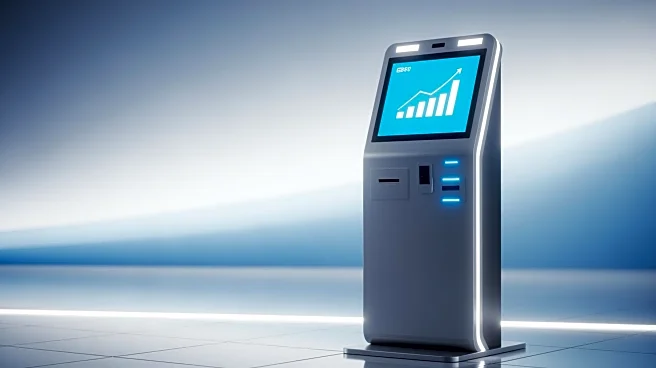What's Happening?
The global Self Service Kiosk Consumption market is anticipated to grow significantly, reaching USD 10.12 billion by 2033. This growth is driven by a compound annual growth rate (CAGR) of 7.8% from 2025 to 2031. The market is expanding as businesses increasingly
adopt automated solutions to streamline operations, reduce labor costs, and enhance customer experiences. Self-service kiosks are becoming prevalent in various sectors, including retail, hospitality, healthcare, banking, and transportation, for tasks such as ordering, check-in, payments, and information retrieval. Key factors contributing to this growth include rising digital transformation, demand for contactless services, and advancements in touchscreen technology. Manufacturers are integrating AI, facial recognition, and cloud connectivity to enhance kiosk functionality.
Why It's Important?
The expansion of the Self Service Kiosk market is significant for several industries, as it represents a shift towards automation and efficiency. Businesses stand to benefit from reduced operational costs and improved customer service, which can lead to increased customer satisfaction and loyalty. The integration of advanced technologies like AI and IoT in kiosks can further enhance their utility, making them indispensable in sectors that prioritize speed and efficiency. This growth also indicates a broader trend towards digitalization and smart technology adoption, which can have far-reaching implications for workforce dynamics and consumer behavior.
What's Next?
As the market continues to grow, further advancements in technology are expected to drive innovation in kiosk functionalities. Companies may increase investments in research and development to create more efficient and scalable solutions. Additionally, government initiatives promoting digital infrastructure and smart city projects could further accelerate market penetration, especially in emerging economies. Stakeholders in the industry will likely focus on strategic partnerships and mergers to expand their market presence and capitalize on the growing demand.
Beyond the Headlines
The rise of self-service kiosks also raises questions about the future of employment in sectors heavily reliant on manual labor. As automation becomes more prevalent, there may be a need for workforce reskilling and adaptation to new roles that complement automated systems. Furthermore, the increased use of AI and data collection through kiosks could lead to discussions about data privacy and security, necessitating robust regulatory frameworks to protect consumer information.















